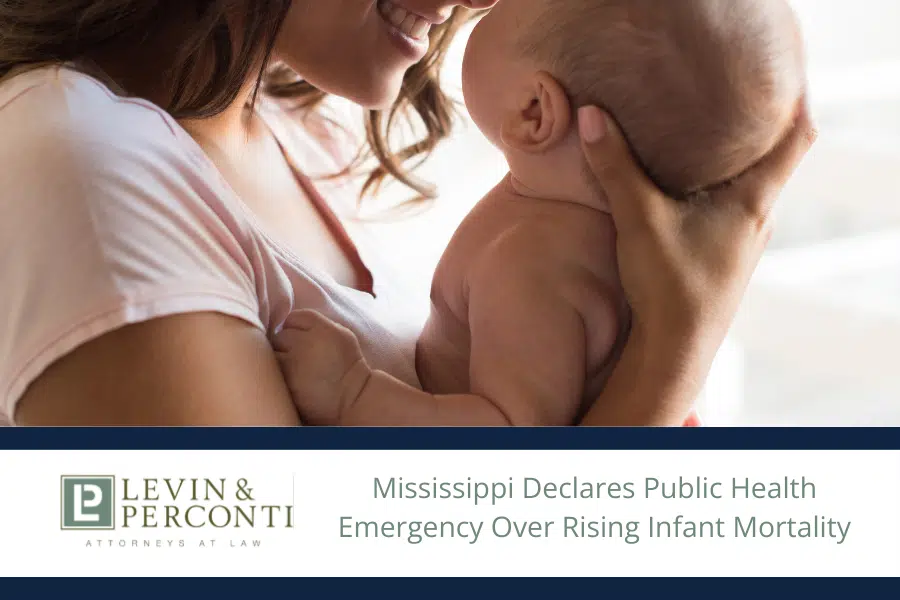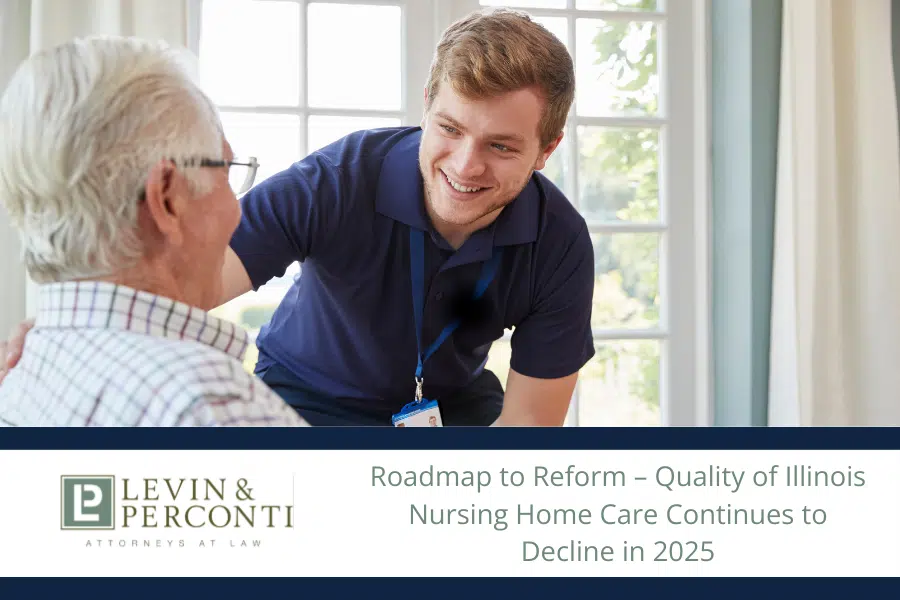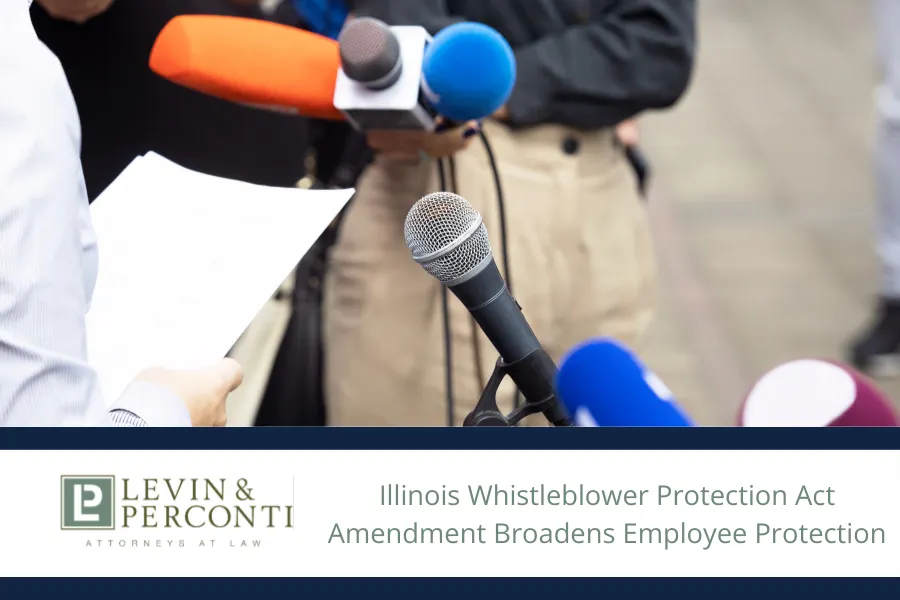
Content Reviewed by:
Steven M Levin
Content Reviewed by: Steven M Levin
Accordion Content
Since 1976, Steve Levin has been dedicated to helping people injured by others’ negligence. He is one of the first attorneys in the U.S. to prosecute nursing homes for abuse and negligence. He’s also helped write new legislation that governs the operation of nursing homes, including the Illinois Nursing Home Care Act. Moreover, Levin & Perconti has obtained the top three jury verdicts in nursing home negligence cases in Illinois.
Ask These Questions Before Choosing a Nursing Home for a Loved One
2020 did its best to reveal the most alarming care deficiencies throughout the country’s nursing homes and skilled nursing facilities. Unfortunately, the pandemic, in some cases, was allowed to target the elderly and nursing home population brutally. While nursing homes and assisted living centers should offer a safe place for your loved one, whether they are your parent, a family member, or a friend who needs guided rehabilitation, you must do the work in choosing the best place on behalf of them. You have the right to ask questions, pull inspection reports, Google the facility, interview staff, read reviews, and have concerns. Because, unfortunately, more than a quarter of all nursing home residents will experience abuse during their residency, and more than half will be neglected.
Start with researching credible online sources, schedule a virtual tour of the facility, or speak with an administrator. Then, be sure to review the following questions to guide your learning about the home’s staffing, environment, and infectious disease outbreaks.
What is the facility type?
- Is the nursing home Medicare-certified?
- Is the nursing home Medicaid certified?
- Are the nursing home and current administrator licensed in my state?
- Does the nursing home offer specialized care?
- What type of rehabilitation services are provided?
- Is there an arbitration agreement requested to be signed?
- Can I have a copy of the resident policies?
- Will the nursing home tell me in writing about their services, charges, and fees before I move my loved one into the home?
What do the nursing home living spaces have?
- Is the nursing home free from overwhelming unpleasant odors?
- Does the nursing home appear clean and well kept?
- Is the temperature in the nursing home comfortable for residents?
- Does the nursing home have good lighting?
- Are the noise levels comfortable?
- Is smoking allowed?
- Is the furniture sturdy yet comfortable and attractive?
- Are any mobility devices shared?
Can you share sample menus and types of food served?
- Do residents have a choice of food items at each meal?
- Is your dining room currently closed or open? Where do residents take their meals?
- Can the nursing home provide for special dietary needs?
- Does the staff help residents eat and drink at mealtimes if help is needed?
How is your staffing?
- Are you currently having staffing challenges due to COVID-19? What are you doing to fix these problems?
- Does the relationship between staff and residents appear to be warm, polite, and respectful?
- Do staff wear masks, and are they equipped with personal protection equipment to protect against COVID?
- How often are staff-tested for COVID?
- Do staff knock on the door before entering a resident’s room?
- Do staff refer to residents by name?
- Does the nursing home offer a training and continuing education program for all staff?
- Is there a licensed nursing staff 24 hours a day, including a Registered Nurse (RN) present at least 8 hours per day, seven days a week?
- How does the nursing home check to make sure they don’t hire staff members who have been found guilty of abuse, neglect, or mistreatment of residents, or have a finding of abuse, neglect, or mistreatment of residents in the state nurse aid registry?
- Has there been a turnover in administration staff, as the administrator or director of nurses, in the past year?
- Where does the nursing home post information about the number of nursing staff, including Certified Nursing Assistants (CNAs)?
- Can I meet the social worker available?
- Is my primary language spoken by staff that will work directly with fellow residents and me?
Can you show me what resident’s rooms look like?
- Can residents have personal belongings and furniture in their rooms?
- Does each resident have storage space (closet and drawers) in their room?
- Can a resident leave their room if showing signs of illness? How do you minimize a resident’s exposure to others who might be sick or tested positive for the coronavirus?
- Does each resident have a window in their bedroom?
- Do residents have access to the internet, a computer, a personal phone, and a television? How often?
- Are there policies and procedures to protect residents’ possessions, including lockable cabinets and closets?
Let’s take a walk through the hallway, stairs, lounges, and check out the bathrooms?
- What types of spaces do residents share?
- How often are these areas cleaned and disinfected?
- Are exits clearly marked?
- Does the nursing home have smoke detectors and sprinklers?
- Are all common areas, resident rooms, and doorways designed for wheelchairs?
- Are handrails and grab bars appropriately placed in the hallways and bathrooms?
What type of activities are typically planned?
- What types of activities can residents, including those who cannot leave their rooms, participate in?
- Do residents help plan or choose available activities?
- Does the nursing home have outdoor areas for resident use?
- What type of disruptions has COVID-19 caused in daily schedules and group activities?
- When does the nursing home allow visitors? Are visits outside?
- Are there procedures for leaving?
- Does the nursing home offer the spiritual or cultural support I need?
I have many questions about safety, including infectious disease control. Are you the best person to answer them?
- How do you screen residents and staff for fevers and respiratory diseases?
- What is your COVID-19 outbreak history?
- What is your COVID-19 testing plan and response strategy?
- Can I have a copy of your infection control policies and procedures?
- Can residents still see their doctors? Does the facility help arrange transportation for this purpose?
- Does the nursing home have an arrangement with a nearby hospital in the case of requiring COVID-19 care?
- Does the nursing home’s inspection report show quality of care problems or other deficiencies?
- Has the nursing home corrected all deficiencies (failure to meet one or more state or federal requirements) on its last state inspection report?
- Does the nursing home have the most current health and fire inspection reports for me to look at?
Do you use a lot of antipsychotic drugs here?
- Does the nursing home have specific policies and procedures related to the care of individuals with dementia? If so, does the policy include non-medication-based approaches to care as a first attempt to respond to behavioral symptoms, which are often a means of communication, for residents living with dementia?
- What percentage of residents who have a diagnosis of dementia are prescribed antipsychotic medication?
- What’s the nursing home’s current rate of the antipsychotic medication use?
- Does the nursing home participate in any efforts related to reducing antipsychotic medication use?
Both state and federal laws protect the rights of residents living in Illinois nursing homes. However, each year, thousands of residents fall victim to nursing home abuse and neglect. Often, negligence occurs because nursing homes are understaffed, and workers are insufficiently trained to care for the complex medical needs of residents living in long-term care. When nursing homes do not comply with safety standards or employ the proper staff, residents may suffer. As a result, they may endure painful injuries such as bed-sores, malnutrition, dehydration, fatal falls, medication errors, come in contact with infectious diseases, or fall victim to physical abuse.
CMS Identified Trends in Nursing Home Abuse and Neglect
In 2019, the U.S. Centers for Medicare and Medicaid Services (CMS) made a much-needed change in how families can be better informed of Illinois nursing homes that have been cited for violations related to abuse, neglect, infectious disease outbreaks, and exploitation. First, take note of any bright red “abuse icon” marking the most troublesome homes. Then, use the medicare.gov site to look more closely at your choice. Even if you don’t see the abuse-alert icon and want to learn more about a facility, look into the following information:
- Review your community’s most recent nursing home violations list via the public health department.
- Become familiar with facilities participating in CMS’s Special Focus Facility (SFF) program.
We should all be part of a solution to curve the abuse and neglect epidemic that continues to plague our most vulnerable citizens. Being better informed of a facility’s violations before choosing a long-term care home is one way to do so.
Researching a Nursing Home’s Deficiencies in 2021
Choosing a long-term care facility for your parent can feel completely overwhelming. The decision-making process is often stressful for the entire family, especially now with the increased risk factors caused by the preventable missteps of too many nursing home owners related to the coronavirus pandemic. In addition to this checklist above provided by Nursing Home Compare, the Illinois Department of Public Health (IDPH) has created an online map of long-term care facilities in Illinois with confirmed outbreaks and cases of COVID-19. The numbers are provisional, and the list is updated weekly here. Scroll down to find the county in which the facility you are looking for is located. As well, Levin & Perconti’s nursing home negligence team is working diligently to post the most updated news regarding outbreaks in Illinois nursing homes here on our blog.
The Nation’s Leading Nursing Home Abuse and Neglect Attorneys
At Levin & Perconti, we have the experience and resources to investigate claims and are currently standing up to violators who choose not to protect residents from harm. If you consider pursuing a legal case against an Illinois nursing home and want to share your story to help others, please contact us for a free consultation at 877-374-1417 or 312-332-2872. All calls and discussions with our attorneys are confidential.



